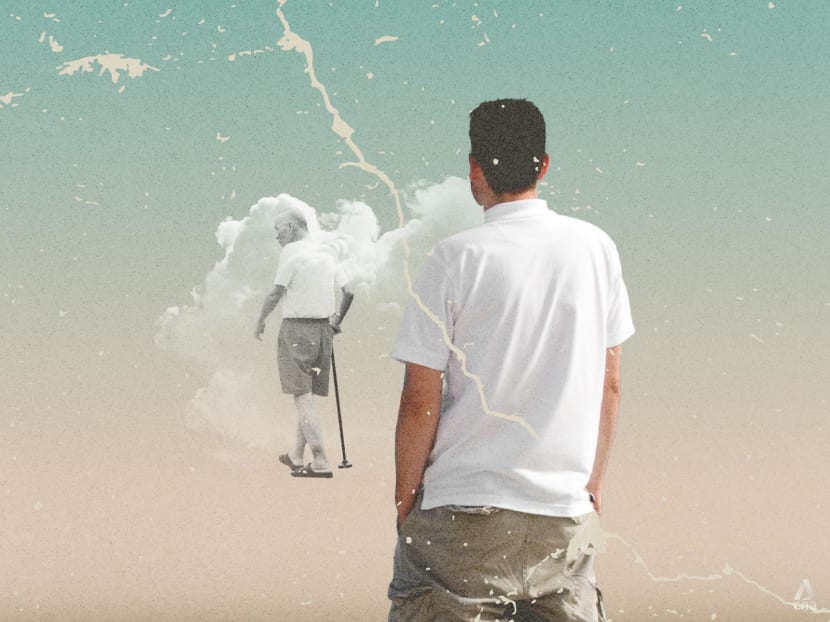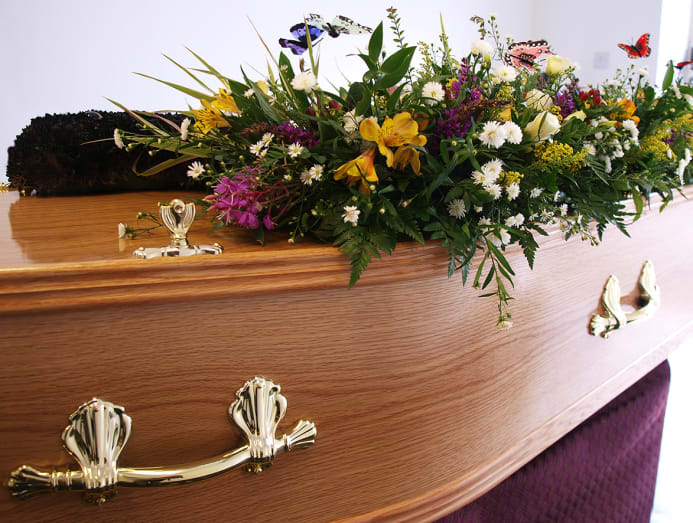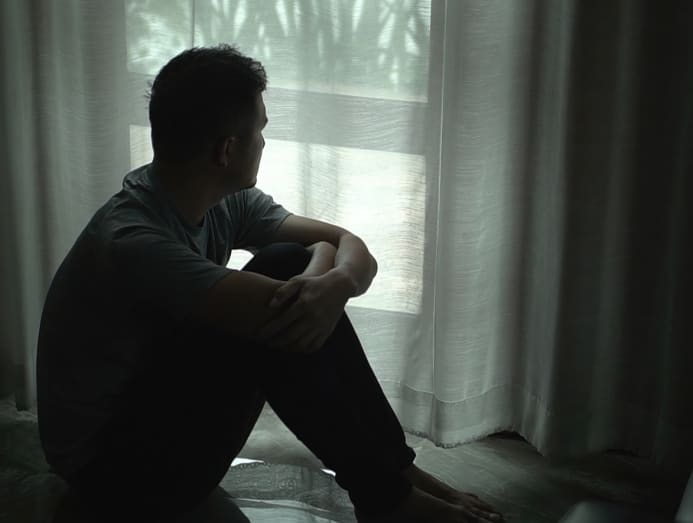Mourning a parent I didn’t love hurt more than I thought it would
In the years leading up to his father’s death, Ivan Ho, 35, barely spoke to him. Here’s how he learnt that grief isn’t always about reconciliation or resolution.

Voices writer Ivan Ho, 35, says: "When my dad passed last year, I learnt that grief can present itself even outside of love." (Illustration: CNA/Samuel Woo, iStock)

This audio is generated by an AI tool.
The late Queen Elizabeth II once said, “Grief is the price we pay for love”. For many of us, grief and loss are traditionally associated with people we love and are important to us.
But when my dad passed away last year, I learnt that grief can present itself even outside of love.
RELATIONSHIP
I’d always had a complex relationship with my father.
Growing up, we were acquaintances at best, until our relationship went downhill in my teenage years.
The situation was aggravated by other circumstances – he’d lost his job and I didn’t understand or know how to support him at the time.
The distance between us became an irreparable rift; we eventually shut each other out of our lives.
In the years leading up to his death, I barely spoke more than 10 complete sentences to him.
To his social circle and relatives, he was an amazing friend, a loving uncle and a loyal brother.
They agreed that while he was loyal to a fault, those who crossed him would inevitably find themselves on the receiving end of his unbridled, towering rage.
“Your dad’s temper, legendary man!” one friend told me during the funeral.
At home, he was an absent father, an uninvolved parent who would rather his family take a hit than "lose face" to his friends. Privately, my siblings and I always thought that he might’ve been happier if he’d stayed single.
As time went on, my resentment was slowly replaced with indifference. I told my close friends: “Since this is the path we chose, and neither of us will change, then we’ll have to live with this.”
DEATH
In October 2023, Dad was hospitalised for kidney problems.
The doctor told us he was also suffering from terminal cancer, which had spread to the lymph nodes. Given the poor prognosis, we discussed the possibility of palliative care, thinking we still had time to consider other options.
He died on his fourth day in hospital, from multiple organ failure.
We don’t even really know what killed him. His cause of death remains cancer of unknown origin.
I don’t remember much of the funeral. For five days, I went through the motions like a robot, sitting through the rites and participating in the chants.

In typical Chinese-oldest-son fashion, I maintained a stoic front with relatives, friends and colleagues.
I told myself I could not show any weakness to anyone, even family members. I just wanted to get through this so that we could move on with life. I even told my siblings that Dad’s passing might be the best outcome for us.
GRIEF
On cremation day, I was all prepared to close this chapter. None of this mattered, I thought. All this would finally end for the day and we could continue with normal life the next day.
At Mandai, before the coffin trundled to the furnace, final rites were performed in a private room.
The funerary assistants told me to thank my father for his love and guidance. Maybe it was the physical exhaustion, but in that moment, the years of buried feelings resurfaced with a vengeance.
My chest constricted and I could barely utter the words. For a few moments, it felt like I'd blacked out. When I returned to reality, I realised that tears were pouring down my face uncontrollably.
In my daze, I don’t remember exactly what I said. But it was something along the lines of, “Let’s end this here, Dad. You move on in peace”.
What was I feeling? If it was grief, this did not make sense – grief was supposed to be borne of love, something that might’ve never even been present in this relationship.
Well-meaning friends tried to console me by telling me, “Don’t think so much about it, you finally can have closure after so many years.”
Through no fault of theirs, this sentiment oddly prickled me. A part of me wanted to retort, “What would you know of this anyway?”
AFTERMATH
In complicated situations that deal with death, we tend to feel obliged to say “nice” things. We leap instinctively to truisms about familial relationships – “No matter what, they’re your parents.”
But such statements can end up making things worse, especially if they’re not anchored with real feelings or lived experiences.
In hindsight, I think I did grieve, perhaps subconsciously, the loss of a love that could have been.
I mourned the lack of a “normal” parental relationship. On a deeper level, I grieved that there would be no true resolution or conclusion to this in this lifetime.

I’m not advocating that everyone should attempt to repair broken relationships with estranged family members simply out of fear of impending or untimely death, or because it is the “socially acceptable” or “expected” thing to do.
Not every relationship can be fixed. Maybe not every relationship should be fixed, either.
My father and I didn’t “fix” our relationship – but I thought this was the best possible outcome for both of us.
LIFE
One year on, I’m still in the difficult process of making peace with the past.
The simple things seem to help most: Journalling, reaching out to friends and going for exercise classes and mindfulness exercises such as meditation.
I now understand that grief takes on many forms. It works differently in the absence of love. It’s not always about the pain of separation – sometimes it’s about the ache for what never was and never will be.
There are still days when grief comes in waves, sometimes with no clear triggers. Even something as mundane as watching a movie can trigger painful flashbacks – as it did with The Garfield Movie that was recently released, of all things.
But I’ve learnt that it does no good to stamp down on those feelings or pretend that they don’t exist.
All the same, navigating grief doesn’t have to mean reconciliation or resolution. Sometimes, it’s just about accepting what cannot be changed and finding the strength to go on with life.
Ivan Ho, 35, is a human resource practitioner by day and an aspiring writer by night.
If you have an experience to share or know someone who wishes to contribute to this series, write to voices [at] mediacorp.com.sg with your full name, address and phone number.










